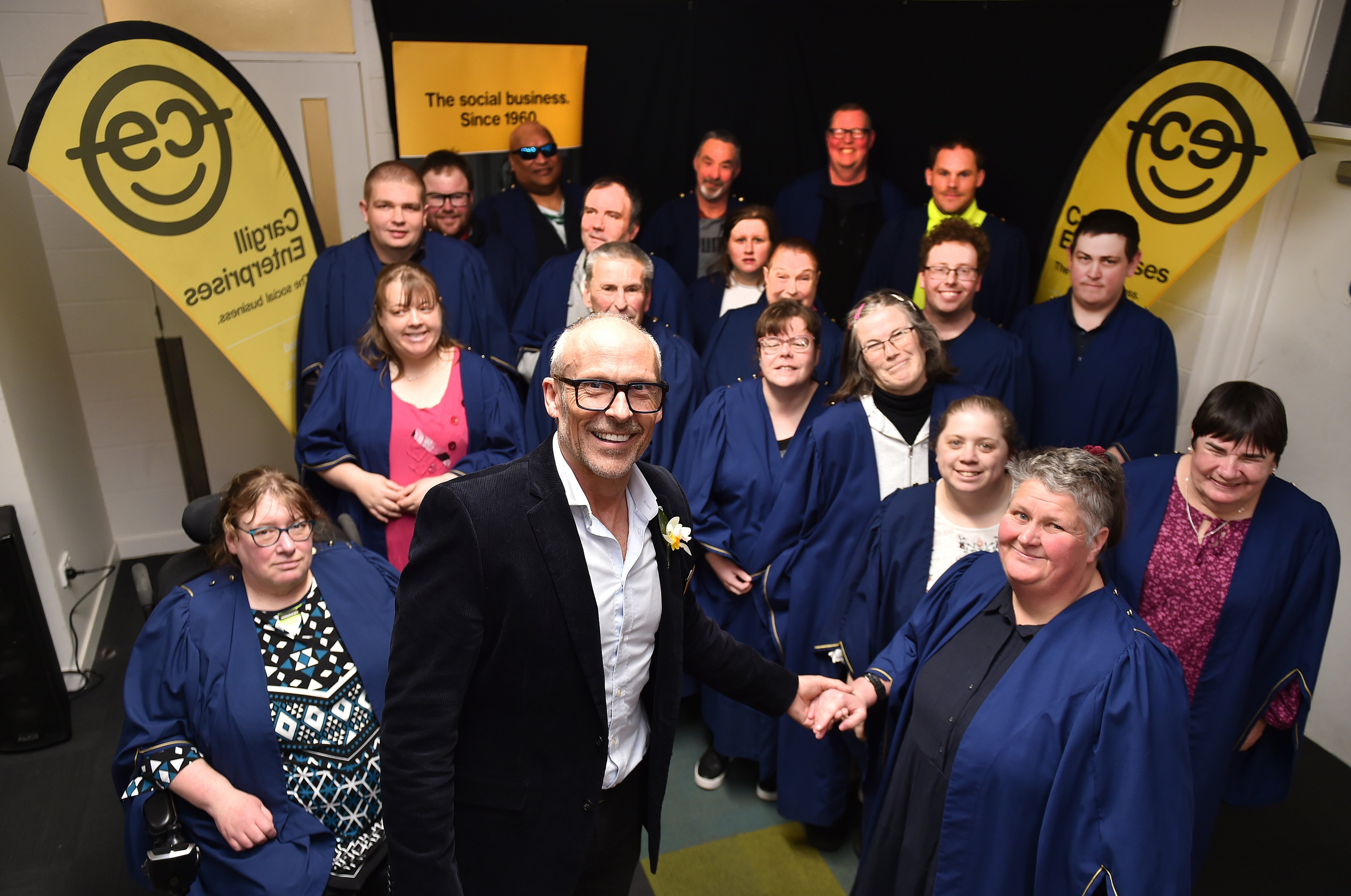
The education programme, run by Cargill Enterprises, aims to give people with physical disabilities and intellectual disabilities more independence by improving their numeracy and literacy, and teaching them about the digital world.
The programme is part of their employment at Cargill Enterprises, where they also get on-the-job training that gives them the skills needed to perform various work tasks, operate machinery, complete workplace paperwork, maintain time management and follow health and safety practices.
Cargill Enterprises chief executive officer Geoff Kemp said the aim was to give all staff improved skills that would lead to increased options and freedom in their lives, including permanent employment in the open workforce.
Twenty-two people graduated from their training at Cargill Academy last night, but Mr Kemp was "heartbroken" the education programme would have to be put on hold due to the lack of funding.
He did not tell the graduates about the funding cut at the graduation because he wanted it to be a celebration for them, not a time of doom and gloom.
The programme started in 2018 as the Skills Highway Programme — an employer-led numeracy and literacy programme underwritten by the Tertiary Education Commission — and it was adapted for people with disabilities.
Mr Kemp said Cargill Enterprises contracted two tutors to run the programme and it had been "highly successful".
The business then became a registered Tertiary Education Organisation (TEO).
"Out of the blue, they stopped our funding in May this year.
"Our bid for the 2024-2025 round of funding was rejected. They felt that we should be absorbing all those costs into our own finances.
"We’re a TEO — the same as schools, universities and polytechs, and they charge their students for tutoring. We’re a non-profit organisation — how do they think that we’re going to just absorb that into our normal finances?"
Mr Kemp was not sure if other organisations running similar programmes also had their funding cut.
"We can’t afford to absorb it.
"It’s heartbreaking.
"If I had one thing in my life that I would like to be remembered for, it would be the Cargill Academy ...
It’s changed so many lives. It lifts heads, it builds confidence, it gives access to areas in their lives that they never had access to before.
"Without the independence that this programme gives them, they would cost the taxpayer more."
Mr Kemp said the programme cost $80,000 to $90,000 a year to run.
"Our guys need this academy to continue to run and be successful. I would love people to sponsor individuals or somehow connect with us to help keep it going.
"At the end of the day, it would be great if there were a couple of entrepreneurial or benevolent people that could help us out."











